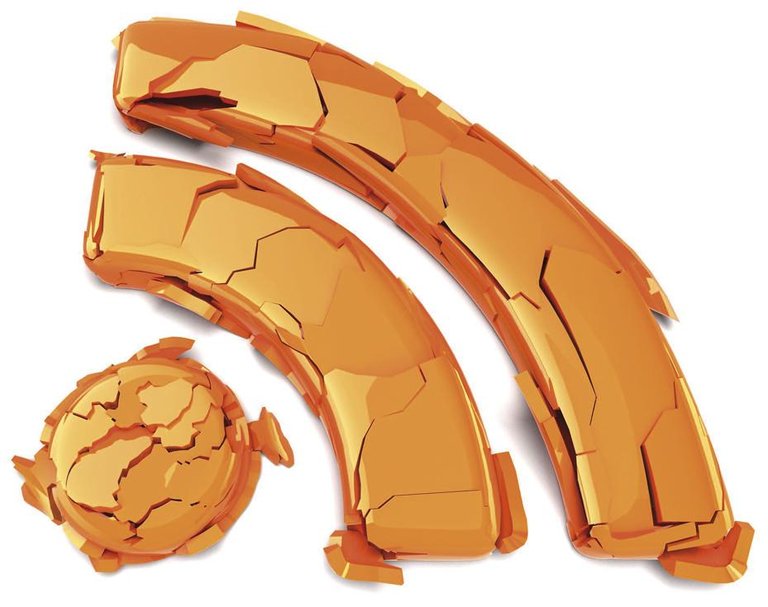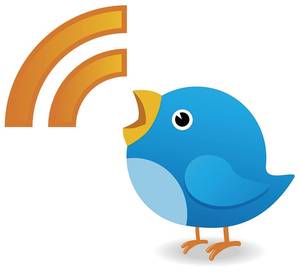Social networks killed the RSS star?

At first, Tim Berners-Lee made the web. This website was not so useful: having a website was only in the hands of companies or institutions and people with computer knowledge. The information was very static. And the technology said: "be interactivity". And so it was. And people found that interactivity was good and differentiated it from the initial web: it called the news Web 2.0 and the previous Web 1.0. (Genesis, 1:1)
Despite the joke of the parallels with the Bible, it is undeniable that the Web 2.0 represented a great change with respect to the above: the websites were much more interactive, they could be done without computer knowledge, many people began to have websites and blogs... But, without a doubt, one of the most important changes was RSS.
Although many webs and blogs began to be updated on many occasions, it was not easy to follow up on what they liked: having to get into all of one at a time, often to find no changes, or to remember the last we read. However, these websites also began to publish an RSS version, a format for the publication of new news or articles that expressed with a well-defined structure each of the fields of the news (title, author, date, content, link...). This allowed us to create programs and services that read the RSS of our favorite websites and blogs and alerted us when there was something new. In this way, the possibility of tracking many sources of information from a single central point was created. We talk about RSS when we talk about the semantic web in the second article of Digital World.
For many, including myself, it was a great revolution, to the point of changing their lives. I don't know what I would do if RSS or rss readers disappeared. Thanks to them, I do a simple follow up of hundreds of sites that publish topics that I like, both personal and professional. Somehow I have my custom media in my rss reader. And I thought everyone was going to happen sooner or later. But time has passed and that has not happened. It is only used by deaf or somewhat technostic people.
Social network Social network
However, for two or three years, everyone is entering social networks. The use of Twitter, Facebook and so on has been massive. It cannot be denied that the number of users has exceeded RSS widely.
And many faithful followers of RSS find it incomprehensible. Look at what Marshall Kirkpatrick says, co-editor of the blog about ReadWrite Web technology: "The non-use of RSS reading software is one of the worst events that speaks of humanity in the history of recent technology. It is disappointing that a personalized, centralized repository to update the dynamic channels of information from reliable and free sources that are published democratically around the world has been replaced technologically by Facebook's Flash gaming presidents, as disappointing as when the dreams of public education were broken into pieces, becoming a reality promise of television. (...) It's amazing. You can collect everything and go home."
Well, I agree with many things that he himself says, but I don't take it so badly. In short, cyberworld is nothing more than a reflection of the real world. And there are many more people who are dedicated to bars than to reading newspapers, because they are mainly social networks, a place to be with people. On the other hand, social networks are not only flash games, but they are also a way to be informed, but not through the favorite media, but also through the friends of social networks, which today are all in them.
I am more concerned about another effect of social networks: the content that is generated in them is often agile (their contents are limited in length and topics are usually more informal), very ephemeral (can not be recovered or found old content) and not open (many content is exclusive to people), but their active dedication requires a lot of time and less time to create quality content on blogs or personal websites. I have the impression that since there are social networks less blogs are written, and that can be worrying for languages as small as Basque. In addition, if again the creation of content, the democratization of the creation brought with it the Web 2.0, remains in the hands of professional media.
In any case, the fact that social networks have many more users does not mean that RSS is dead, even though it has been announced for many years. Video killed the radio star group The Buggles announced the death of the radio in 1981 and 30 years later looked.
It is because the deaths make headlines more striking or because the old king must be killed to claim the news. But there must not always be a winner; coexistence is also possible, and in this case it is also necessary. And it is that I am convinced that social networks are largely fed by the users of RSS in the first step. These users know the information and share it on social networks. Hence the dissemination of information begins. Without them, perhaps there would be much less content on social networks and it would not be so interesting.
Buletina
Bidali zure helbide elektronikoa eta jaso asteroko buletina zure sarrera-ontzian












